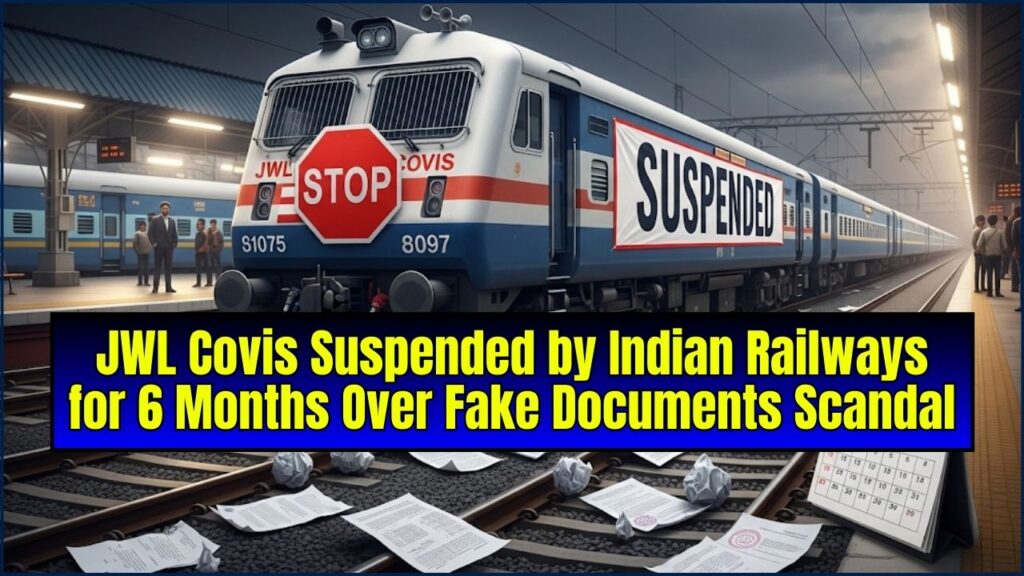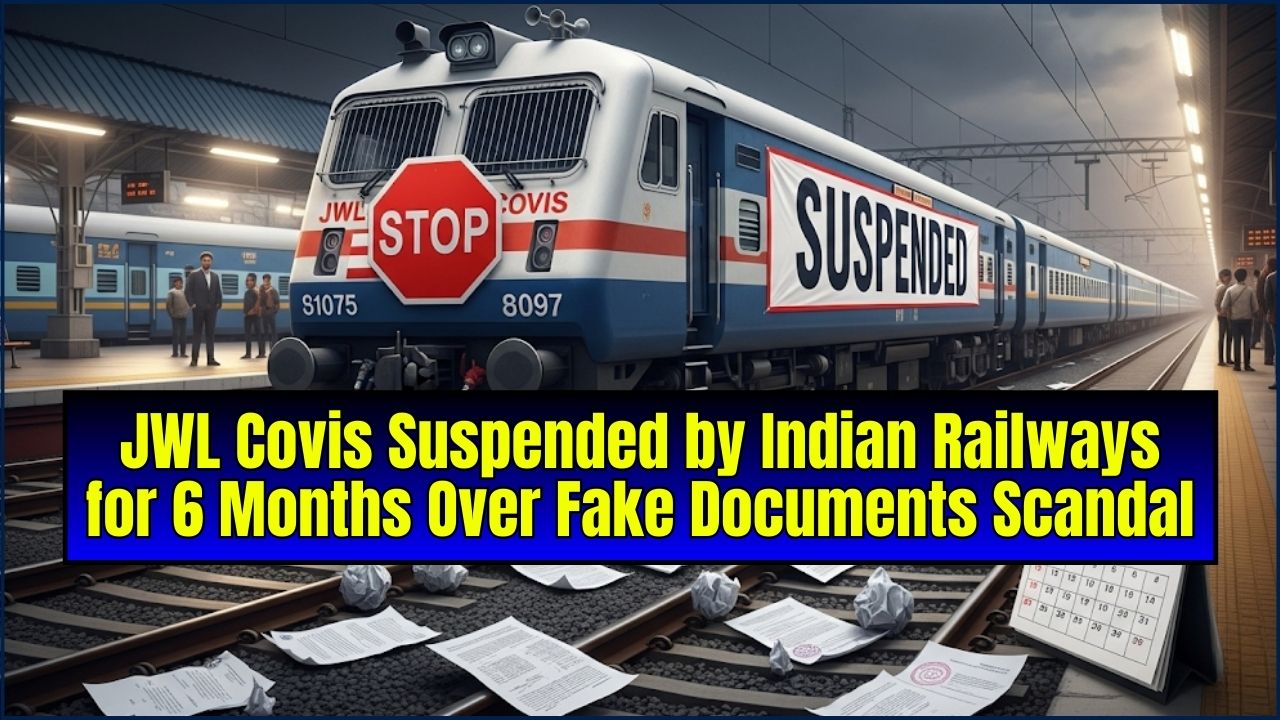
Indian Railways has suspended JWL Kovis, a joint venture between Jupiter Wagons Limited and Slovenia-based Kovis, for six months. The decision follows findings that the company allegedly misrepresented local content in a brake disc tender issued by the Modern Coach Factory (MCF) in Raebareli.
Why JWL Kovis Was Suspended
According to a report in The Economic Times, the suspension stems from allegations that JWL Kovis falsely declared 90 percent local sourcing of brake disc castings in its bid. Investigations indicated that the components were imported rather than manufactured in India.
The suspension is part of Indian Railways’ broader drive to ensure compliance with the “Make in India” programme, which requires contractors to meet strict localisation criteria in supply tenders.
Background on the Joint Venture
JWL Kovis was formed to leverage Jupiter Wagons’ domestic manufacturing capabilities and Kovis’ European expertise in railway components. The company has participated in several tenders under the Modern Coach Factory, one of Indian Railways’ leading production units.
In January 2025, the Research Designs and Standards Organisation (RDSO), the technical body of Indian Railways, downgraded JWL Kovis from “Approved” to “Developmental” vendor status. Industry observers say this downgrade signalled growing scrutiny of the company’s practices.
Implications for Indian Railways and Suppliers
The suspension highlights the risks of misrepresentation in government tenders. Railway officials, speaking on condition of anonymity to Indian media, said the action aims to “set a precedent for strict enforcement of localisation requirements.”
Experts note that the decision could temporarily disrupt the supply of brake discs, but Indian Railways is expected to redirect orders to other qualified vendors. “The immediate impact on coach production is manageable, but it sends a strong message about integrity in procurement,” said Dr. Anil Kumar, a transportation policy analyst at the Indian Institute of Management Ahmedabad.
Broader Significance of the Case
The incident underscores challenges in verifying compliance with localisation policies, especially in sectors dependent on high-quality imports. While “Make in India” has boosted domestic manufacturing in many industries, enforcement gaps remain.
Some industry representatives argue that the suspension could discourage foreign joint ventures if enforcement is perceived as punitive rather than corrective. Others maintain it is essential for preserving fairness in competitive bidding.
Reactions and Next Steps
Jupiter Wagons Limited and Kovis have not issued a detailed public response. Analysts expect the companies to appeal the suspension, though Indian Railways has not indicated whether such a review will be considered.
The suspension is valid for six months, after which Indian Railways may reassess the joint venture’s eligibility based on compliance measures.
Looking Ahead
For Indian Railways, the case serves as both a caution and a commitment to transparency. By acting against JWL Kovis, the railway operator reinforces the importance of trust in public procurement. The outcome of this suspension could influence how localisation policies are enforced across other sectors of Indian industry.
















